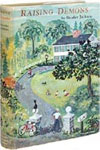Collection of 13 fundamental papers by Cantor (of which 12 are the first translations into French). 1. Sur une propriété du systeme de tous les nombrés algébriques réels (translation of "Über eine Eigenschaft des Inbegriffes aller reellen algebraisc.
"CANTOR, GEORG. - THE FUNDAMENTAL PAPERS ON SET-THEORY, TRANSFINITE NUMBERS, THE CONTINUUM ETC.
From
Herman H. J. Lynge & Søn ILAB-ABF, Copenhagen, Denmark
Seller rating 3 out of 5 stars
![]()
AbeBooks Seller since November 2, 2000
About this Item
Description:
Stockholm, F. & G. Beijer, 1883, 1884, 1885. 4to. Contained in 3 issues from "Acta Mathematica", Vol. 2:4, vol. 4:4 a. vol. 7:2. All 3 issues with orig. printed wrappers, no backstrip.Vol. 2:4: pp. 305-310, 311-328, 329-335, 336-348, 349-380, 381-408, 409-414. - Vol. 4:4: pp. 381-392 - Vol. 7:2: pp.105-124. First appearance in French of Cantor's main, groundbreaking papers, the foundations of Set-Theory, Denumerability, Reals, Algebraic Number Theory, Infinite Point Sets, Transfinite Set Theory, Transfinite Numbers, The Continuum Hypothesis, Theory of Content (volume) for Finite and Transfinite Point Sets, etc.The last paper "Zweite Mittheilung), the paper offered here as no. 12, finished the series devoted to the "Punktmannigfaltigkeiten" is the first printing, as Cantor agreed to add half a dozen or so paragraphs to his "Grundlagen" (no. 9 offered here) in order to clarify how his theories could add to the progress of other departments of the sciences. These paragraphs contains Cantor's "World Hypothesis". The first paper on algebraic numbers proves that the set of all algebraic numbers has the same power as the set of natural numbers, that is, that it is not "denumerable" or "countable", but the set of real numbers not only exist but are nondenumerably infinite. This paper is considered the first formal publication on set theory."Having demonstrated the existence of sets with the same power and different powers, Cantor pursued this concept of the power of a set and introduced a theory of cardinal and ordinal numbers in which the transfinite cardinals and ordinals are the striking elements. Cantor developed this work in a series of papers in the "Mathematische Annalen" from 1879-1884.In the fifth paper on linear aggregates Cantor opens with the observation "The description of my investigations in the theory of aggregates has reached a stage where their continuation has become dependent on a generalization of real positive integers beyond the present limits" a generalization which takes a direction in which, as far as I know, nobody has yet looked." (Morris Kline).Hilbert spread Cantor's ideas in Germany and said "No one shall expel us from the paradise which Cantor created for us". He praised Cantor's transfinite arithmetic as "the most astonishing product of mathematical thought, one of the most beautiful realizations of human activity in the domain of the purely intelligible". Betrand Russel described Cantor's work as "probably the greatest of which the age can boast"."These discoveries of Cantor were a continuation of the infinite, and Cantor was well aware of it. He defended St. Augustine's full acceptance of the actually infinite, but had to defend himself against the opposition of many mathematicians who refused to accept the infinite except as a process expressed by [the symbol of infinity]. Cantor finally won full acceptance when the enormous importance of his theory for the foundation of real function theory and of topology became more and more obvious - this especially after Ebesque in 1901 had enriched the theory of aggregates with his theory of measure." (Dirk J. Struik). Seller Inventory # 41918
Bibliographic Details
Title: Collection of 13 fundamental papers by ...
Binding: Soft cover
Edition: 1st Edition
AbeBooks offers millions of new, used, rare and out-of-print books, as well as cheap textbooks from thousands of booksellers around the world. Shopping on AbeBooks is easy, safe and 100% secure - search for your book, purchase a copy via our secure checkout and the bookseller ships it straight to you.
Search thousands of booksellers selling millions of new & used books
New & Used Books
New and used copies of new releases, best sellers and award winners. Save money with our huge selection.
Rare & Out of Print Books
From scarce first editions to sought-after signatures, find an array of rare, valuable and highly collectible books.




